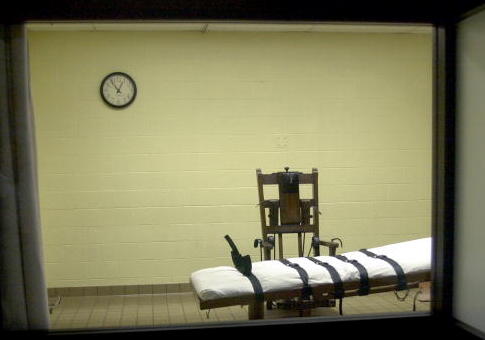Voters oppose abolishing the death penalty 64 to 31 percent, according to a recently released poll of American voters from Quinnipiac University.
A slightly smaller proportion, 58 percent, supported the death penalty "for persons convicted of murder," while 33 percent are opposed it and nine percent are undecided. This proportion is slightly higher than that most recently reported by Gallup, which found 55 percent support for the death penalty for murder in its October 2017 poll. That rate is the lowest number Gallup has found since the death penalty was re-legalized nationwide in 1976.
Fifty-one percent of Americans would opt for punishing with life without parole (LWOP) over the death penalty, Quinnipiac found in its survey, the first time a majority had opted for LWOP over death since the polling group began asking the question in 2004.
"It's a mixed message on a question that has moral and religious implications. Voters are perhaps saying, 'Keep the death penalty, but just don't use it," said Tim Malloy, assistant director of the Quinnipiac University Poll.
Majorities of Republicans (84 percent) and independents (64 percent) oppose death penalty abolition; 46 percent of Democrats oppose, while 47 percent support, abolition. Opposition to abolition persists across ethnicities, with 66 percent of white Americans, 56 percent of black Americans, and 60 percent of Hispanic Americans opposing. Seventy-two percent of men oppose abolition, as opposed to 57 percent of women.
In preferences about capital punishment versus LWOP, Republicans are the only group by party affiliation to prefer the death penalty—59 percent, as compared to 19 percent of Democrats and 37 percent of independents. Forty percent of white Americans prefer the death penalty, as compared to 23 percent of black Americans and 34 percent of Hispanic Americans.
The results support the Supreme Court's decision last week to not hear a case seeking to judicially abolish the death penalty nationwide. That case claimed capital punishment was contrary to "contemporary standards of decency," therefore violating certain tests generally applied to the Eight Amendment's prohibition on cruel and unusual punishment.
Notably, majorities of American voters oppose imposing the death penalty for those convicted of selling drugs that lead to a lethal overdose. Seventy-one percent oppose the practice, including 57 percent of Republicans; 75 percent of voters said that they believed the death penalty would not stop America's opioid crisis.
This may be concerning news for the Trump administration, which has backed seeking the death penalty for certain drug dealers under preexisting federal law. A group of Republican senators has called for harsher sentences for traffickers in fentanyl, with several publicly considering federal death penalty statutes to make capital punishment an option in more drug-related crimes.
